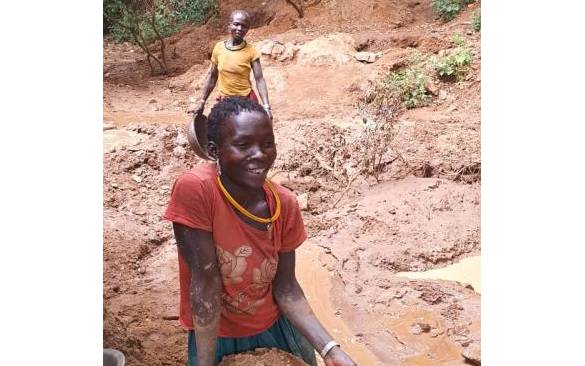×
The Standard e-Paper
Smart Minds Choose Us

Women at Lokitonyala location in West Pokot County prospecting for gold to enable them to feed their families during Covid-19 pandemic. [Irissheel Shanzu, Standard]
As the day breaks, women miners in West Pokot brace for another excruciating day at River Muruny while searching for precious gold particles along river beds.